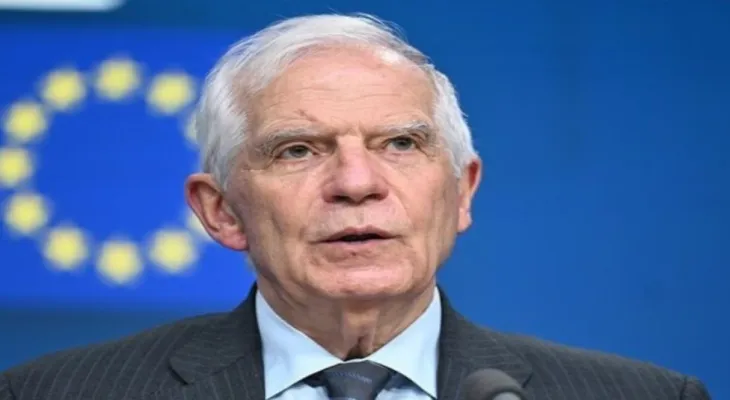Search here
Newspaper
Search here

Arab Canada News
News

Published: November 14, 2024
Reuters reported that Josep Borrell, the European Union's foreign policy chief, proposed suspending political dialogue with Israel due to its potential involvement in human rights violations during the Gaza war.
A message sent by Borrell to the EU foreign ministers, ahead of their scheduled meeting next Monday, indicated that he feels "serious concerns about potential violations of international humanitarian law in Gaza." Borrell confirmed that Israel has not addressed these concerns adequately thus far.
Political Dialogue and Proposal for Suspension
Political dialogue is an essential part of the broader partnership agreement between the EU and Israel, which also includes trade relations and came into effect in June 2000. In his message, Borrell emphasized the need to use the human rights clause to suspend political dialogue.
Suspending the dialogue requires the approval of all 27 EU member states, which diplomats described as "extremely unlikely." Three diplomats reported that several countries expressed objections when ambassadors in Brussels were informed of Borrell's proposal.
One noted that the proposal aims to send a strong message regarding Israel's conduct in the war, while another diplomat expressed "surprise" among the ambassadors at the lack of preparation for this proposal.
Divergence in European Countries' Positions
The proposal will be discussed at the meeting of foreign ministers, which will be the last chaired by Borrell before the end of his five-year term.
This move comes amid criticism from the United Nations Human Rights Commission, which stated that 70% of verified victims in the war are women and children, describing the situation as a systematic violation of the fundamental principles of international humanitarian law.
Reactions from Israel
Israel rejected the Commission's report, claiming that military operations "adhere to the principles of distinction and proportionality and are preceded by accurate assessments of the potential harm to civilians."
The European Union faces challenges in reaching a unified stance on the war in Gaza, with support from countries like the Czech Republic and Hungary for Israel, contrasted by supportive positions for the Palestinians from other countries such as Spain and Ireland.
Comments